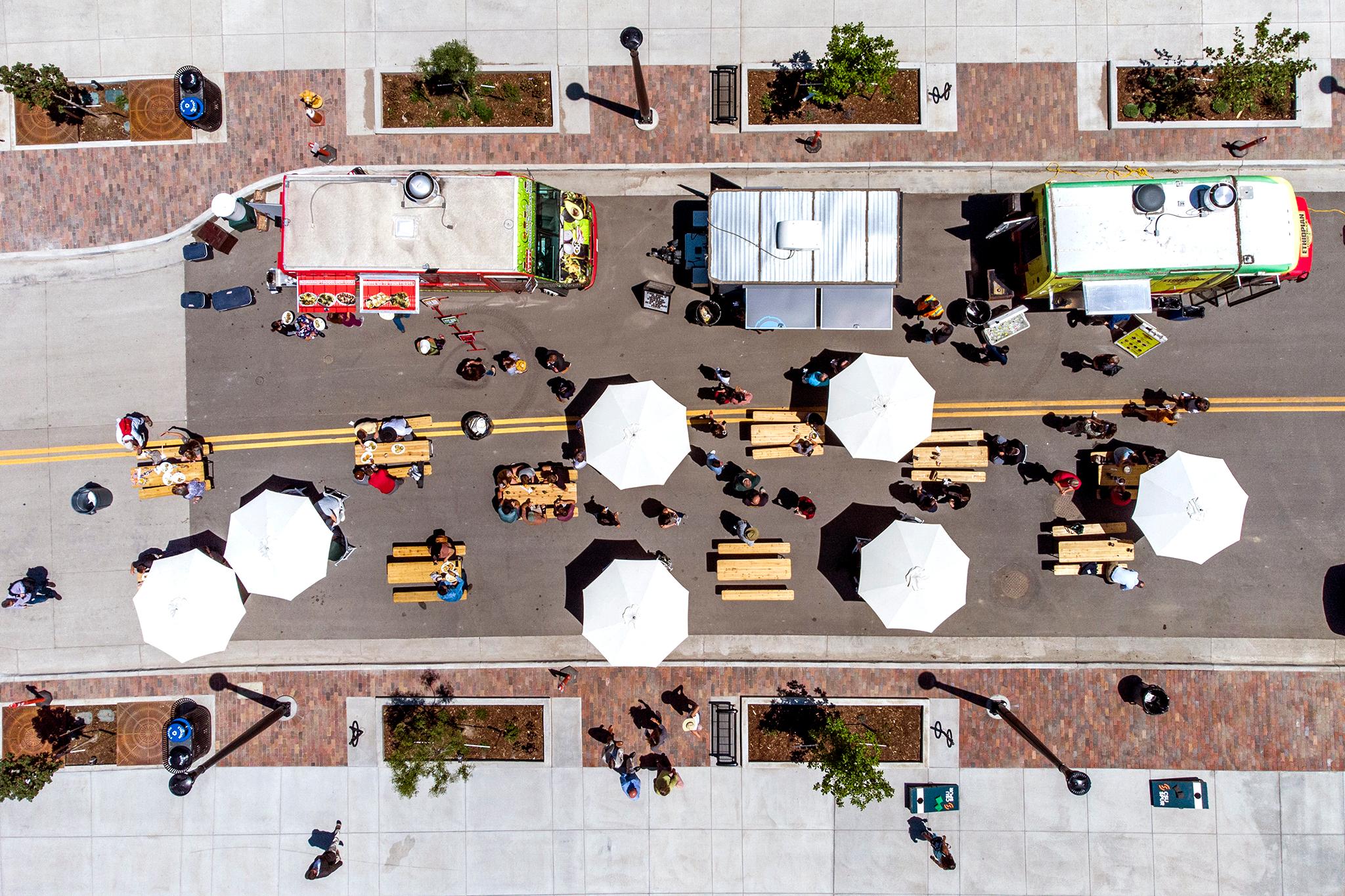The city of Denver likes to do things differently, sometimes to the frustration of local businesses. Case in point: food trucks.
Currently, food truck operators must get a special food-safety license to operate in Denver. Every other city in Colorado accepts a standard statewide license.
A state law signed today by Gov. Jared Polis will change that, forcing the capital city to accept the statewide health license. It also will make it easier for food trucks to comply with fire regulations across the state.
“I believe this bill eliminates red tape and allows competition," said Maximo Valdez, owner of Maxim Custom Food Trailers in Denver, at a recent committee hearing. “It opens doors for aspiring entrepreneurs, and it also grows the economy, because they're able to work in the whole state, they're able to pay their sales tax in every county.”
How the law makes it easier for food truck operators
The law, HB25-1295, establishes reciprocity between the Denver license and the statewide license, meaning that the state license is now valid in Denver and vice versa. Truck operators will still have to apply to use one license in the other jurisdiction.
Denver isn’t the only area with challenging rules for food trucks. Food trucks also have to comply with local fire regulations, which can vary from place to place — and from month to month.
“So not only now do we have to know whether West Metro [Fire Protection District] ends at Lakewood? Does it end at Golden, does it end at Littleton? Like, where is West Metro? But we also have to be on top of if those fire departments have any turnover,” said David Sevcik, who runs 10 local trucks.
In one recent case, a new fire chief at a local department changed the rules on short notice, forcing Sevcik to drop out of an event in the area.
The new law offers a similar solution to those fire-code issues. Operators will be able to take fire safety permits from city to city, as long as the original issuer follows certain standards. Operators will have to send a copy of the permit to the new jurisdiction at least 14 days in advance.
There was some back-and-forth on the bill
The original version of the bill drew opposition from the city of Denver and other local governments. As first drafted, the proposal would have gone even further — overriding local limits on where and when food trucks can operate. But in the final version, food truck operators will still have to obey those local time-and-place rules.
“We had many concerns that the bill would erode Denver's economy and formal authority, and we really appreciate [the sponsors’] willingness to hear those concerns and work toward operable solutions,” said Erica Rogers, policy director for the city’s Excise and Licenses Department, at the most recent bill hearing.
The amendments would allow the city to move to a “neutral” position on the bill, she said.
Lobbying records showed that other local governments, including Aurora, Fort Collins and Arvada, were opposed to the measure.
What happens next?
The bill takes effect Jan. 1, 2026.
“The Department of Excise and Licenses is reviewing the bill for licensing impacts in partnership with other impacted city agencies,” said Eric Escudero, spokesperson for the city licensing department, in a statement.
He stressed that operators will still need a valid Denver license through the end of the year.
“As soon as the city has completed the review of the change to state law, we will communicate how the changes may impact operators in Denver,” Escudero added.











